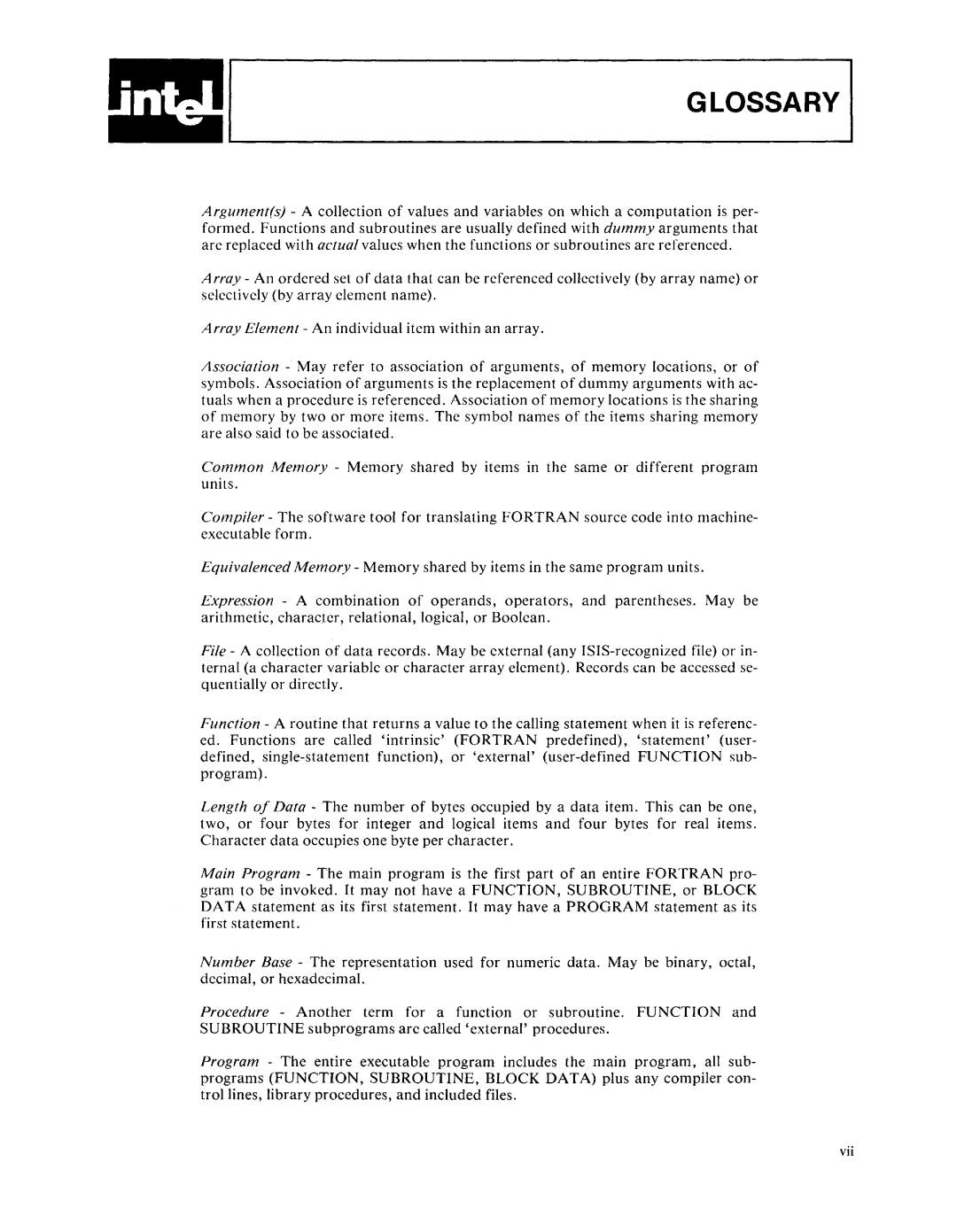
GLOSSARY
Argument(s) - A collection of values and variables on which a computation is per- formed. Functions and subroutines are usually defined with dummy arguments that are replaced with actual values when the functions or subroutines are referenced.
Array - An ordered set of data that can be referenced collectively (by array name) or selectively (by array element name).
Array Element - An individual item within an array.
Association - May refer to association of arguments, of memory locations, or of symbols. Association of arguments is the replacement of dummy arguments with ac- tuals when a procedure is referenced. Association of memory locations is the sharing of memory by two or more items. The symbol names of the items sharing memory are also said to be associated.
Common Memory - Memory shared by items in the same or different program units.
Compiler - The software tool for translating FORTRAN source code into machine- executable form.
Equivalenced Memory - Memory shared by items in the same program units.
Expression - A combination of operands, operators, and parentheses. May be arithmetic, character, relational, logical, or Boolean.
File - A collection of data records. May be external (any
Function - A routine that returns a value to the calling statement when it is referenc- ed. Functions are called 'intrinsic' (FORTRAN predefined), 'statement' (user- defined,
Length of Data - The number of bytes occupied by a data item. This can be one, two, or four bytes for integer and logical items and four bytes for real items. Character data occupies one byte per character.
Main Program - The main program is the first part of an entire FORTRAN pro- gram to be invoked. It may not have a FUNCTION, SUBROUTINE, or BLOCK DATA statement as its first statement. It may have a PROGRAM statement as its first statement.
Number Base - The representation used for numeric data. May be binary, octal, decimal, or hexadecimal.
Procedure - Another term for a function or subroutine. FUNCTION and SUBROUTINE subprograms are called 'external' procedures.
Program - The entire executable program includes the main program, all sub- programs (FUNCTION, SUBROUTINE, BLOCK DATA) plus any compiler con- trollines, library procedures, and included files.
vii
